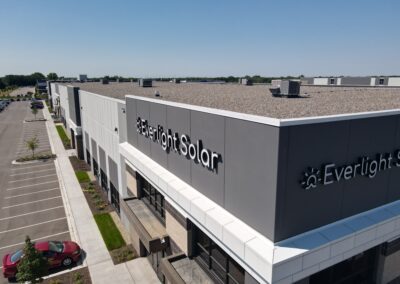Why Go Solar?
As sustainability grows, embracing solar power at home is an eco-friendly choice and a practical step toward energy independence and financial savings. Today, utility companies actively champion this transition, encouraging homeowners to harness the sun’s power. This effort demonstrates a shared commitment to a greener future and amplifies the impact of individuals joining the solar revolution.
Peak Load Management
Solar’s value lies not only in harnessing the sun’s energy but also in doing so precisely when needed most. Residential solar installations become incredible generators, injecting a surge of electricity into the grid precisely during peak demand periods. Utility companies now have a valuable resource to balance the scales, reducing reliance on costly peak power plants and alleviating the strain on the grid. Solar empowers homeowners to be active contributors to the energy equation. Solar power provides utility companies with a reliable ally in the quest for efficient and sustainable energy distribution. Moreover, as homeowners generate their electricity, utility companies can strategically invest in greener and more efficient power plants. This aligns their operations with the broader goal of transitioning towards a more environmentally responsible and sustainable energy future.

Grid Reliability & Decentralization
Additionally, homeowners embracing solar energy become key contributors to a distributed generation network. This decentralized approach mitigates the need for extensive centralization and improves grid stability and reliability. Scattered across residential landscapes, solar installations serve as distributed power sources that enhance overall resilience. By harnessing energy at the point of consumption, utility companies can optimize grid operations, reduce transmission losses, and fortify against centralized failures. The result is a more adaptive and dependable energy infrastructure, where the collective impact of solar adoption fosters a robust and stable grid for both homeowners and utility companies.
As homeowners across the nation embrace solar power, utility companies are presented with an opportunity to build a more sustainable and resilient energy infrastructure. The surge in residential solar installations is a practical catalyst for utility companies to invest in sustainable power plants. By encouraging homeowners to generate their solar energy, utility companies can lessen the strain on the traditional power grid.
Net Metering
Omaha Public Power District says that net metering “measures how many kilowatt/hours (kWh) of energy you send to the grid versus how much you take from it during a specified period.” Furthermore, as households increasingly adopt solar energy, utility companies see the advantages of integrating renewable energy storage through the net metering program. Homeowners equipped with solar panels and engaged with net metering serve as distributed energy reservoirs.
This offers utility companies a dynamic resource for load management and grid optimization. With the net metering program, storing excess solar energy during peak production periods and crediting it back to the grid during high-demand phases reduces strain on the grid and mitigates the need for costly peak power plants. This synergy between homeowners and utility companies in harnessing solar power, coupled with efficient net metering, allows homeowners to utilize the energy generated during the day at night. This helps create a future of sustainable and resilient energy future.
How can you Transition to Solar?
Are you interested in relieving the utility company’s grid and producing power on-site at your home? Click here for our free consultation!




